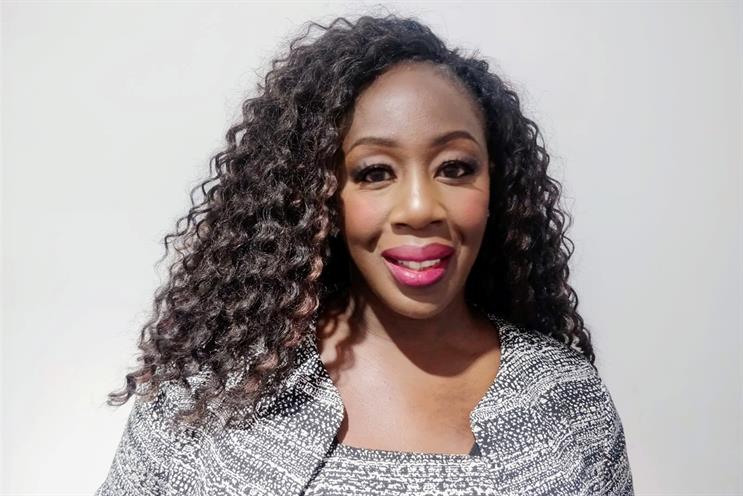Brands seem to understand that diversity is key to marketing growth, yet too many of them don’t truly consider the diversity and identity of the audiences they are seeking to connect with.
This is why I undertook my latest research project, The Black Pound, which explores how black, Asian and minority-ethnic people are represented in society across the advertising and media industry. It also looks at what identity means and how it relates to an individual’s economic status in modern-day Britain.
The advertising and media industry is one of the most influential sources of information and holds enormous influence on how people from ethnic backgrounds are portrayed and perceived. When stories regarding the BAME community are communicated responsibly, people from all backgrounds will begin to see themselves in a positive light with potential. Fair representation not only educates, it positively informs and affects how a nation thinks, feels and behaves towards BAME groups.
Yes, this might appear like just another story during Black History Month, but the subject of representation will continue to be topical in our embryonic society of diverse culture.
Representation matters
As we witness the UK experiencing a cultural transformation, we can use this current climate to explore the social and economic consequences of grouping so many cultures into one community cluster to understand the impact that identity, heritage and cultural norms has on the economic choices we make.
Let me introduce a concept formulated by economists George Akerlof and Rachel Kranton known as "identity economics": an all-inclusive model that describes how who we are and who we want to be can shape our economic lives more than any other factor, how it can affect how hard we work and how we learn, spend and save. Identity economics is a way to understand people's behaviours and decisions – at work, school and the home.
Scientists have shown that when humans see an illustration of themselves, it validates, connects and increases value and self-esteem because the mirror identity conveys a message of inclusion and aspiration. If BAME cultures do not experience positive representation, this will create marginalisation and, in the long term, damage to the economy.
With Brexit looming, the UK government is actively courting overseas emerging markets; meanwhile, back in the UK, there are opportunities staring us right in the face within the BAME community. Indeed, the IPA's Multicultural Britain 2012 report revealed the positive influence of the BAME community, who accounts for 12% of the UK population and holds purchasing power of £300bn per year and rising.
The advertising and media industry prides itself on connecting on a personal level with audiences, therefore it's imperative for it to recognise the value of identity economics.
Changing the narrative: how brands can tackle representation
1 Recognise the transformative power of storytelling
Stories shape, educate and engage. Move from talking about what positive representation can achieve and start implementing gradual changes by creating campaigns led by people from multiracial backgrounds and use them to tell powerful stories.
We are more alike than we are different. Human beings all work, eat, shop and visit hair salons (especially black women, who spend more money than their white counterparts, with the UK black hair industry worth an estimated £88m) – so it is clear how much the industry can impact society and build our economy by becoming more inclusive.
2 Break inertia and take courage
Resistance to change is part of our psyche, because our minds are unconsciously wired to believe that things are better unchanged. It's a point underlined by Frank Cooper, global chief marketing officer at investment group BlackRock, who said at the Cannes Lions: "Diversity is hard because people are inherently uncomfortable with people who are not like them and find it hard to relate to people who don’t have the same symbols, rituals or stories as them." Yet he believes, as I do, that people can be taught how to become more comfortable with difference and that diversity does work will lead only to better results for all.
This shift should be a business priority, not just because it is the right thing to do, but because it drives revenues across more than just BAME audiences. For Black Panther, which raked in $1bn after less than a month at cinemas, those who bought tickets were actually 63% non-African Caribbean. Another example is Crazy Rich Asians, which has brought in $139m thus far, with 56% of non-Asian audiences generating sales. The Nike campaign featuring Colin Kaepernick has already generated $43m in media exposure for Nike.
These examples are exciting, because all communities need a voice and it’s essential for the advertising and media industry to be courageous. Failure to embrace this trend can only result in brands and consumers becoming excluded from business opportunities.
3 Recognise that diversity fuels growth
Diverse talent is the way towards economic growth. Glance at the labels on the foods we eat, the clothes we wear and the products we use to identify where they are sourced. It is obvious that the next step is to attract the right multicultural talent in the workplace. Recruit chief executives, directors and leaders to join your teams who can be of benefit to help you understand culture and society.
Success cannot be achieved without implementation. Invest in personal development and training; make that all-important decision to incorporate mentoring, coaching and sponsorship to enable your business to become more inclusive and current; take a leap of faith towards a stronger workplace and a more harmonious environment that actually mirrors humanity.
Lydia Amoah is a business coach, inspirational speaker and patron for Show Racism the Red Card


